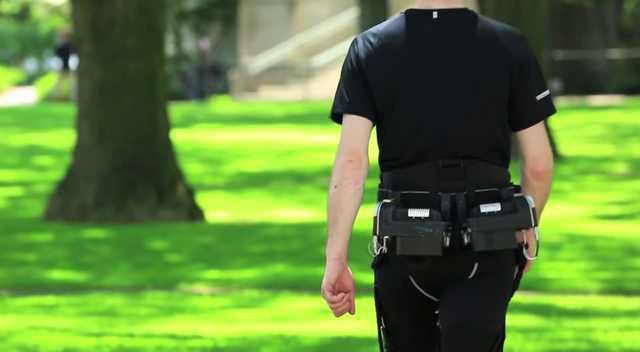CAMBRIDGE, Mass. — A soft, wearable robot that mimics leg muscles could soon help soldiers and people with physical disabilities.
Researchers at Harvard University are currently developing the robot, Soft Exosuit. The team recently received $2.9 million of funding from the Defense Advanced Research Projects Agency to make the robot a reality, the school announced Thursday.
“The device, the Soft Exosuit, is intended to be worn comfortably under clothing and could enable soldiers to walk longer distances, keep fatigue at bay, and minimize the risk of injury when carrying heavy loads,” a statement from Harvard reads. “Alternative versions of the suit could eventually assist those with limited mobility as well.”
The lightweight robot can be pulled on like a pair of pants and uses soft sensors and flexible power systems to help people as they walk, according to researchers.
“Through a biologically inspired design, the suit mimics the action of the leg muscles and tendons when a person walks, and provides small but carefully timed assistance at the joints of the leg without restricting the wearer’s movement,” the statement reads.
The team is working to develop versions of the suit for both military and medical applications.








